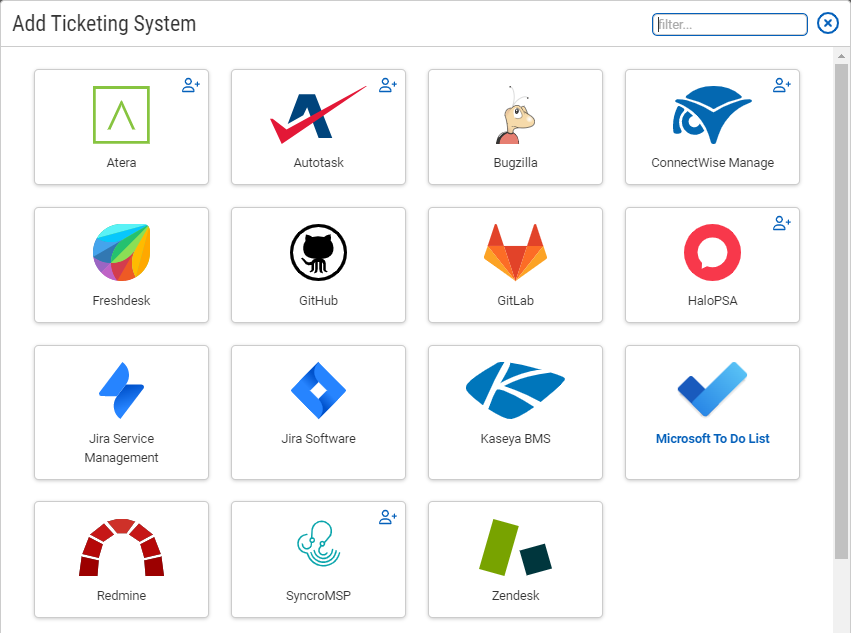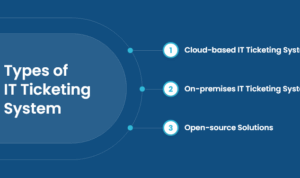ConnectWise Ticketing is transforming the way businesses manage their customer support and service requests. By integrating ticketing systems into daily operations, organizations can enhance their response times, improve communication, and ultimately boost customer satisfaction. This approach not only streamlines workflows but also ensures that no request goes unnoticed, allowing teams to prioritize effectively.
In today’s fast-paced environment, businesses are increasingly reliant on technology to meet customer needs. ConnectWise Ticketing stands out by offering a comprehensive platform that keeps track of all inquiries and resolutions. As businesses of all sizes navigate the complexities of customer service, understanding and implementing effective ticketing solutions is more critical than ever for maintaining a competitive edge.
In today’s fast-paced and ever-evolving society, the concept of sustainable living has taken center stage. As we face increasing challenges such as climate change, resource depletion, and environmental degradation, it becomes imperative for individuals, communities, and nations to adopt practices that promote sustainability. This article explores the importance of sustainable living, its benefits, and practical ways to incorporate it into our daily lives.
Understanding Sustainable Living
Sustainable living refers to a lifestyle that aims to reduce an individual’s or society’s use of the Earth’s natural resources. The goal is to create a balance between the needs of the present without compromising the ability of future generations to meet their own needs. This approach encompasses various aspects of life, including energy consumption, waste management, transportation, and food production.

The Benefits of Sustainable Living
Adopting a sustainable lifestyle offers numerous benefits, not only for the environment but also for personal well-being and economic stability. Here are some key advantages:
1. Environmental Protection
One of the most significant benefits of sustainable living is its positive impact on the environment. By reducing waste, conserving energy, and utilizing renewable resources, we can help combat pollution, preserve biodiversity, and mitigate climate change. For instance, using public transportation or cycling instead of driving can significantly reduce carbon emissions.
2. Improved Health and Well-Being
Living sustainably often leads to healthier choices. By opting for organic produce, reducing processed foods, and promoting local farming, individuals can improve their diets and overall health. Furthermore, spending time in nature and engaging in outdoor activities can enhance mental well-being, reducing stress and anxiety.
3. Economic Savings
While some may perceive sustainable living as an expensive lifestyle choice, it can actually lead to significant cost savings. For example, reducing energy consumption through energy-efficient appliances or adopting a minimalist lifestyle can lower utility bills. Additionally, investing in renewable energy sources, such as solar panels, can yield long-term financial benefits.
4. Community Resilience
Sustainable living fosters a sense of community and connection among individuals. By supporting local businesses, participating in community gardens, or engaging in neighborhood clean-up activities, people can build strong relationships and create a more resilient community. This sense of belonging is essential in addressing social issues and enhancing overall quality of life.
Practical Ways to Adopt Sustainable Living
Transitioning to a sustainable lifestyle may seem daunting, but there are many manageable steps individuals can take. Here are some practical tips to get started:
1. Reduce, Reuse, and Recycle
One of the most effective ways to minimize waste is to embrace the three R’s: reduce, reuse, and recycle. Start by reducing consumption of single-use products, opting instead for reusable alternatives. For instance, carry a water bottle and use cloth bags for shopping. When it’s time to dispose of items, make sure to recycle whenever possible to ensure materials can be repurposed.
2. Conserve Energy
Energy conservation is critical for sustainable living. Simple changes like switching off lights when leaving a room, using energy-efficient appliances, and unplugging devices when not in use can make a significant difference. Additionally, consider investing in renewable energy solutions, such as solar panels, to further reduce your carbon footprint.
3. Choose Sustainable Transportation
Transportation is a major contributor to greenhouse gas emissions. Opting for public transit, carpooling, biking, or walking can dramatically decrease your carbon output. If driving is necessary, consider choosing a fuel-efficient or electric vehicle to minimize environmental impact.
4. Support Local and Sustainable Agriculture
Food production significantly affects the environment, and supporting local farmers is a great way to promote sustainability. Purchase organic and seasonal produce from farmers’ markets or join a Community Supported Agriculture (CSA) program. This not only reduces the carbon footprint associated with transportation but also supports the local economy.
5. Educate Yourself and Others
Knowledge is power when it comes to sustainable living. Stay informed about environmental issues, sustainability practices, and innovations in green technology. Sharing this information with friends and family can create a ripple effect, inspiring others to embrace sustainable practices in their lives.
Challenges to Sustainable Living
While the benefits of sustainable living are clear, there are challenges that individuals and communities may face. These can include societal norms, lack of access to resources, and economic barriers. Addressing these challenges requires collective effort and collaboration among individuals, businesses, and governments to create systems that support sustainable practices.
The Role of Governments and Organizations
Governments and organizations play a crucial role in promoting sustainable living. Policies that incentivize renewable energy, support public transportation, and encourage sustainable agriculture can lead to significant positive changes. Additionally, corporations can adopt sustainable practices in their operations, supply chains, and product offerings, further contributing to a greener future.
The Future of Sustainable Living
As we look to the future, the importance of sustainable living will only continue to grow. Climate change and environmental degradation present significant challenges that require immediate action. By embracing sustainable practices, we can create a healthier planet for ourselves and future generations. The journey toward sustainability is ongoing, and every small step counts.
Conclusion
In conclusion, sustainable living represents a vital pathway toward a healthier planet and a better quality of life. By understanding its importance, recognizing its benefits, and implementing practical strategies, individuals can contribute to a more sustainable future. It is up to each of us to take responsibility for our actions and make choices that reflect our commitment to the environment and future generations.

Answers to Common Questions
What is ConnectWise Ticketing?
ConnectWise Ticketing is a software solution designed to help businesses manage customer support requests efficiently through a ticketing system.
How does ConnectWise Ticketing improve customer service?
It enhances customer service by organizing requests, prioritizing issues, and ensuring timely responses from support teams.
Can ConnectWise Ticketing be integrated with other software?
Yes, ConnectWise Ticketing can be integrated with various other software solutions to streamline operations and enhance functionality.
Is ConnectWise Ticketing suitable for small businesses?

Absolutely, ConnectWise Ticketing is scalable and can be tailored to meet the needs of small to large businesses alike.
What kind of reporting features does ConnectWise Ticketing offer?
It offers comprehensive reporting features that allow businesses to track performance metrics and improve their support processes.
















